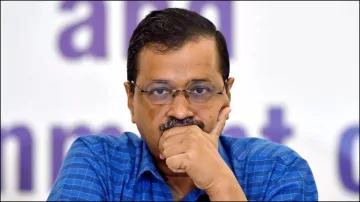Arvind Kejriwal in jail: With Delhi Chief Minister Arvind Kejriwal set to remain in Tihar Jail until April 15 due to the liquor policy scam case, concerns have arisen regarding his ability to govern from prison. At present there is no specific rule preventing the government from being run from jail, but Kejriwal may face practical challenges in conducting official duties from Tihar Jail. The most significant challenge is that while the government can technically be operated from jail, the Chief Minister may face limitations in conducting official meetings. Additionally, any orders issued by the CM may require approval from the court.
Although he may be able to delegate certain responsibilities to other officials, conducting official meetings and issuing orders may require special arrangements and court approval. All activities of the prisoner in jail are closely monitored, and any official actions must be conducted under court supervision. While the prisoner may sign legal documents with the assistance of a lawyer, obtaining court approval is necessary for signing any government documents. Additionally, any decisions made by Kejriwal from jail may be subject to legal scrutiny. Overall, while it may be technically possible for the government to continue functioning, running the government from jail may pose significant logistical and legal hurdles.
According to the jail manual, as per sources:
- In Delhi jails, meetings are allowed twice a week, whether the individual is an undertrial or a convict.
- As soon as a visitor arrives at the jail, they have to provide the names of the persons they want to meet. They need to list 10 names. However, only one of the ten individuals will be permitted to make a telephone call to the jail, a process known as telebooking. During this call, the nominated individual will specify the date they intend to visit the prisoner in jail. The jail operator then informs them of the available dates to ensure convenience.
- Three visitors can come and meet in jail at one time.
- Visitors can meet the prisoner in a designated area, separated by iron grills and mesh to prevent the passage of prohibited items.
- Meetings usually start at 9:30 am and continue until 12:30 pm, allowing for a three-hour interaction.
- According to sources, the Jail Superintendent has the authority to decide the venue and schedule of meetings.
- For high-security or VIP prisoners who might face security risks, meetings can be conducted in special areas like the deodi.
- In cases involving highly secure or death-sentence prisoners, meetings can even be arranged in their cells or in the Jail Superintendent's office.
- However, the signing of files cannot be done from within the jail premises. It is up to the Superintendent's discretion to allow the signing of important files, but running a government from jail is not permitted.
Delhi excise policy case
The case pertains to the alleged corruption and money laundering in formulating and executing the Delhi government's excise policy for 2021-22 which was later scrapped. The case originated from a report presented by Delhi Chief Secretary Naresh Kumar to Lieutenant Governor (LG) Vinai Kumar Saxena in July 2022, highlighting purported procedural deficiencies in the development of the policy. The report said "arbitrary and unilateral decisions" taken by AAP leader Manish Sisodia in his capacity as Excise Minister had resulted in "financial losses to the exchequer" estimated at more than Rs 580 crore.
Also Read: Arvind Kejriwal taken to Tihar, to be lodged in jail number 2 under 24-hour CCTV surveillance
Also Read: CM Arvind Kejriwal will not resign, to run government from jail: AAP
